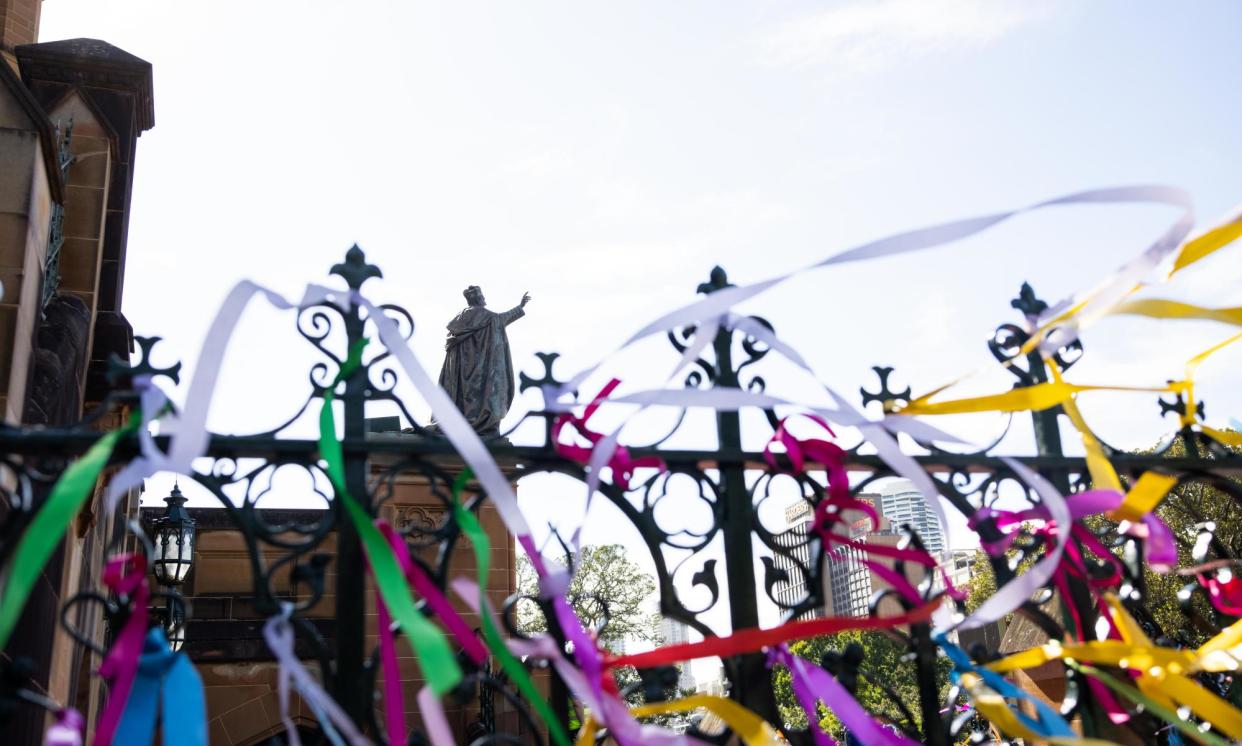High court decision to limit Catholic church abuse legal tactics to become law under NSW proposal

New South Wales parliament will consider a bill to further restrict churches and other institutions from using stay applications to prevent abuse survivors having their cases heard.
Last year, Guardian Australia revealed the widespread use of stay applications to permanently halt civil cases brought by survivors where perpetrators had died.
The Catholic church and other institutions effectively used the passage of time to block survivors from having their cases heard by arguing a fair trial was no longer possible.
The tactic was adopted despite clear evidence before the royal commission that significant barriers meant survivors took, on average, 22 years to come forward, and that institutions had themselves hindered justice by concealing abuse from law enforcement and destroying records.
The high court delivered a significant blow to the use of stays in November, finding they must only be allowed in rare and exceptional circumstances or risk bringing “the administration of justice into disrepute”.
Related: NSW to consider action over Catholic church abuse legal tactics
Legalise Cannabis Party upper house MLC Jeremy Buckingham is preparing to introduce a bill to state parliament to enshrine the high court findings into statute law and remove any uncertainty around the way stay applications can be used.
It introduces changes that would limit the ability for a defendant to argue for a permanent stay simply because of the passage of time. The bill would also allow survivors who had a stay granted against them since 2016 the ability to have their cases reconsidered.
Buckingham said he was aware of about a dozen cases that had been permanently halted due to stays in that time period.
“We want justice for victims of child sexual assault,” Buckingham said. “That’s what we want.”
“We want to ensure that they get their day in court, in the civil court, and that what I think [of as] this cunning ‘lawfare’ is removed as a tactic from institutions.”
Survivor Matt Barker said the legislation would be “enormously beneficial” for those who were still pursuing justice through the courts.
Barker’s own case against Scouts NSW was stayed last year, despite the fact that his abuser was alive, had been convicted of criminal offences against Barker, and was willing to give evidence.
Barker appealed and has since settled but said he was “aware of other organisations still using the threats of permanent stays” against other survivors.
“[The legislation] would be enormously beneficial for anyone who has a live case and it also has provisions for anyone whose case was closed due to a stay or because of the threat of a stay to allow them to re-litigate their case,” he said.
“From that point alone, it’s super important legislation because there will be so many people out there who have accepted minute settlements.”
The government has previously indicated support for amending the law to enshrine the high court’s findings.
In November, Buckingham moved a motion recognising the court ruling and to “consider enacting legislation to amend the Limitation Act 1969 to remove this roadblock to justice once and for all”.
The government said at the time that it “supports the motion as it asks for the government to consider mechanisms and changing statute law, which we will do”.
Buckingham said the government was yet to act, so he was introducing the bill to force change.
A spokesperson for the attorney-general Michael Daley said the government had not yet seen Buckingham’s bill and had not been able to consider its contents.
In Australia, children, young adults, parents and teachers can contact the Kids Helpline on 1800 55 1800, or Bravehearts on 1800 272 831, and adult survivors can contact Blue Knot Foundation on 1300 657 380. In the UK, the NSPCC offers support to children on 0800 1111, and adults concerned about a child on 0808 800 5000. The National Association for People Abused in Childhood (Napac) offers support for adult survivors on 0808 801 0331. In the US, call or text the Childhelp abuse hotline on 800-422-4453. Other sources of help can be found at Child Helplines International


